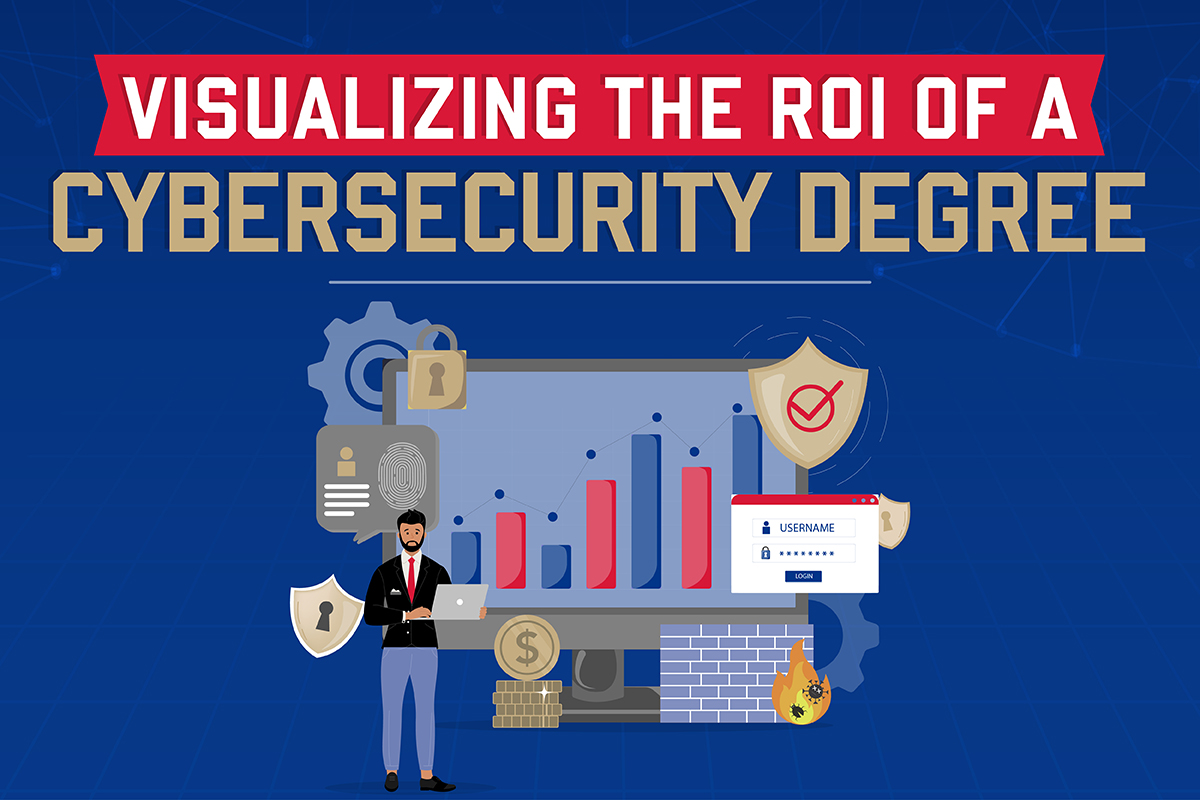The Role of a Cybersecurity Director
Written by:
University of Tulsa
• Jan 4, 2024

According to a report published by the World Economic Forum, about 43% of organizational leaders believe that their companies will be targeted with cybercrime in the next two years. The same report notes that 56% of security leaders meet with their boards regularly, an indication that executives are increasingly aware of the dangers of cybercrime.
Cyber attacks no longer focus solely on obtaining data or ransom money. Rather, they focus on disrupting a business and irreversibly harming its reputation. As the very character of cybercrime continues to shift, and as these types of criminal activities become more frequent, the position of cybersecurity director will grow increasingly important. An advanced degree such as a Master of Science (MS) in Cyber Security offers the knowledge and preparedness required to thrive in this increasingly important role.
What’s a Cybersecurity Director?
A cybersecurity director is a senior-level executive position focused on overseeing an organization’s entire cybersecurity effort. It involves the design, development, implementation, and maintenance of cybersecurity prevention within a set budget and according to state and federal regulations. The cybersecurity director serves as the hub of cybersecurity leadership for an organization and keeps the board of directors informed about the current state of security.
In previous years, cybersecurity was left to a company’s information technology (IT) department. However, as attacks have grown more sophisticated, more companies and corporations have added the cybersecurity director position to their senior-level payroll. With a dedicated department — and the associated department head — organizations can better protect themselves against these increasingly common crimes.
What Does a Cybersecurity Director Do?
Cybersecurity directors serve their organizations in many unique ways. They may lead their organizations’ IT departments on their own, or they may focus solely on preventing and responding to cybercrime. These individuals work from one or more offices depending on their organizations’ structures. Some may work in the same office every day, but others may travel to different locations from one day to the next.
The duties of a cybersecurity director include the following:
- Reviewing current protocols to determine their efficacy against cybercrime
- Supervising IT security design, development, and implementation
- Overseeing regular penetration testing to ensure that the company’s defenses are adequate
- Hosting regular mock incident drills, so the cybersecurity team can practice its response skills
- Responding to threats in ways that minimize downtime and expenditures
- Advising CEOs, shareholders, and board members on all matters of organizational cybersecurity
- Managing the IT and cybersecurity budget
- Ensuring that all cybersecurity measures adhere to state and federal laws and regulations
How to Become a Cybersecurity Director
Cybersecurity directors are well trained and highly skilled. Most begin their cybersecurity careers by taking high school courses focused on computers and IT and then go on to earn bachelor’s degrees in cybersecurity or computer science.
Those who are interested in pursuing a role as a cybersecurity director must gain work and management experience in the cybersecurity field. Due to the complexity of today’s cybercrime, most organizations require their cybersecurity directors to earn a master’s degree in cybersecurity. These degrees provide the advanced skills and knowledge required to not only protect a company’s data and network but also lead a team of skilled professionals.
Cybersecurity Director Work Environment, Salary, and Job Outlook
Cybersecurity directors work in various industries. Salary levels can vary based on location, employer, education, and experience.
Work Environment
Cybersecurity directors tend to work full-time hours in office settings, but they may be required to work unusual hours in the face of an occurring or imminent cyber attack. Some may spend a great deal of time traveling or in meetings with the company’s board of directors and shareholders. The position can be demanding at times, and it requires a great deal of organization and management.
Salary
Computer and information systems managers, including cybersecurity directors, earned a median annual salary of $164,070 as of May 2022, according to the U.S. Bureau of Labor Statistics (BLS). Those who have more education and experience or who work for large companies tend to earn higher salaries than recent graduates and those working for smaller companies. The highest 10% of managers earned more than $239,000 in 2022, while the lowest 10% earned less than $97,400.
Job Outlook
The BLS also reports that employment in this field is expected to climb by 15% between 2022 and 2032, with about 46,900 openings projected each year during the forecast period. Demand for knowledgeable professionals, an expected increase in attempted cybercrime, and projected advances in technology in the coming years will drive growth.
Protect Data and Networks as a Cybersecurity Director
The role of cybersecurity director is in extremely high demand around the world. Some of the largest global corporate and enterprise organizations rely on their cybersecurity directors to protect them from harm — both financially and reputationally.
You can help these companies protect their data and networks from intrusion by earning your online MS in Cyber Security degree from The University of Tulsa. This degree program will equip you with the skills and knowledge you need to lead a team of professionals to success.
Recommended Readings
What Is the Future of Fintech?
Cybersecurity and AI: A Changing Landscape
What Cybersecurity Professionals Really Need to Know About Programming
Sources:
CyberSN, Cybersecurity Director
Indeed, How to Become a Cybersecurity Manager
Medium, “Why Strong Leadership Is Crucial for Cybersecurity”
U.S. Bureau of Labor Statistics, Computer and Information Systems Managers


